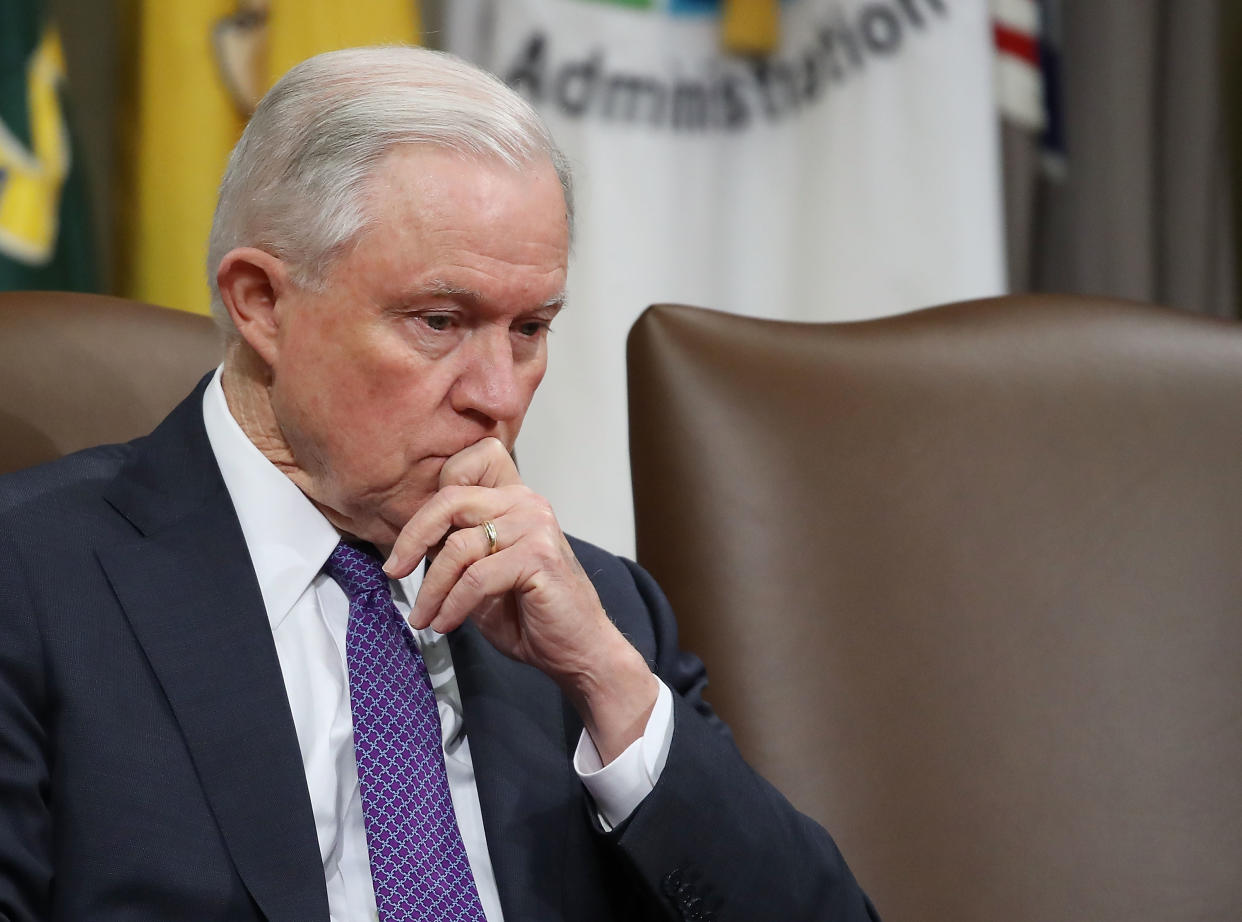Who will replace Jeff Sessions?

The dismissal of Jeff Sessions, the long-embattled U.S. attorney general, had been expected for months. But who will replace him as the nation’s top law enforcement officer? That person will have to oversee Robert Mueller’s investigation into potential Trump campaign collusion with Russia, which Trump wants to conclude quickly. He or she will also have to enact Trump’s hard-line immigration policies. And before all that, he or she will have to win confirmation from the Senate.
The job, in other words, is unlikely to be a low-stress affair.
Although Sessions’s chief of staff, Matthew Whitaker, has been named as acting U.S. attorney general, Trump will want a permanent replacement in this crucial post.
Below, a few nominees the president may be considering.
Kris Kobach: Kobach, the Kansas secretary of state, lost his race for the governorship Tuesday. A graduate of Harvard and Yale Law School (Trump loves an Ivy League pedigree), he has closely echoed the president’s hardline stance on immigration. In 2017, he was named vice chairman of a White House commission to investigate voter fraud, though there was virtually no evidence of fraud in the 2016 election. A Trump loyalist who was reportedly under consideration as secretary of homeland security, Kobach could be rewarded at the moment when his political fortunes appear to be at their lowest.
Janice Rogers Brown: Trump is fond of making history, as when he picked Gina Haspel to be the first woman to lead the Central Intelligence Agency. Rogers Brown, a retired U.S. Circuit Court judge for the D.C. Circuit, would be the first Republican woman of color to serve as U.S. attorney general. (Loretta Lynch, who ran the Justice Department from 2015 to 2017, is a Democrat, appointed by Barack Obama.) Rogers Brown is a favorite in conservative legal circles, in part because of her inspiring story, from rural Alabama to the California Supreme Court and the federal bench. But she could also face a tough Senate confirmation because of her staunchly conservative views, which include having compared liberalism to slavery.
Alex Azar: Azar, a former pharmaceutical company executive, was confirmed by the Senate in January to head the Department of Health and Human Services, which could allow him to bypass a difficult confirmation battle. A lawyer with degrees from Dartmouth and Yale Law, he is a beloved son of the Federalist Society, which has helped the Trump administration select judges, including both of Trump’s Supreme Court nominees, and worked on independent counsel Kenneth Starr’s investigation of the Clinton administration. A careful political operative, Azar bears some professional resemblance to Brett Kavanaugh, the newest Supreme Court justice. He does not, however, have significant federal law enforcement experience.
John Cornyn: The senior U.S. senator from Texas once served as a justice on that state’s Supreme Court and later as its attorney general. He was one of the Republicans on the Senate Judiciary Committee instrumental in the confirmation of Kavanaugh, whose nomination was imperiled by allegations of sexual assault. If picked to head the Department of Justice, Cornyn would need confirmation himself.
Rudy Giuliani: The combative former mayor of New York has served as Trump’s lawyer since April. In that capacity, he frequently appeared on cable news in a bombastic, occasionally confounding effort to discredit the Mueller investigation or, at the very least, to browbeat Mueller into finishing that investigation quickly. There is little evidence, thus far, that Giuliani’s bluster had any influence on Mueller. In other respects, however, Giuliani closely echoes Trump’s law-and-order platform. As a federal prosecutor in New York in the 1980s, he was famous for going after organized crime. But that was long ago, and Giuliani has since become an unabashed and largely unrestrained partisan. Senators are likely to wonder, none too quietly, if he can serve as an impartial attorney general.
Others potential nominees: Chris Christie, former New Jersey governor and early endorser of Trump’s presidential campaign; Kelly Ayotte, a former New Hampshire senator who also served as the Granite State’s attorney general; Jeanine Pirro, pro-Trump personality on Fox News and onetime district attorney and judge. South Carolina Sen. Lindsey Graham, who has remade himself into an ardent Trump partisan, has been mentioned as a candidate but reportedly has taken himself out of the running.
_____
Read more from Yahoo News:
The CIA’s communications suffered a catastrophic compromise. It started in Iran.
Ending the Qatar blockade might be the price Saudi Arabia pays for Khashoggi’s murder
How Robert Mercer’s hedge fund profits from Trump’s hard-line immigration stance
Trump’s target audience for migrant caravan scare tactics: Women


